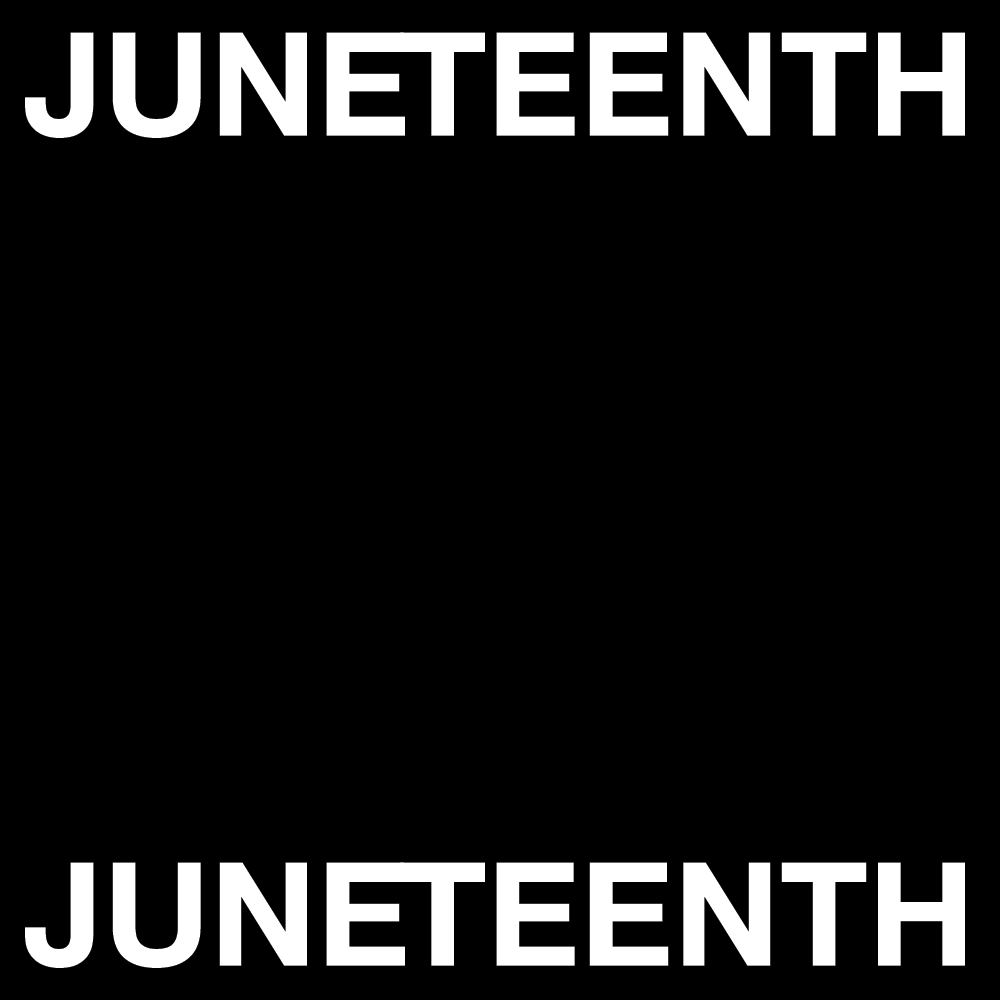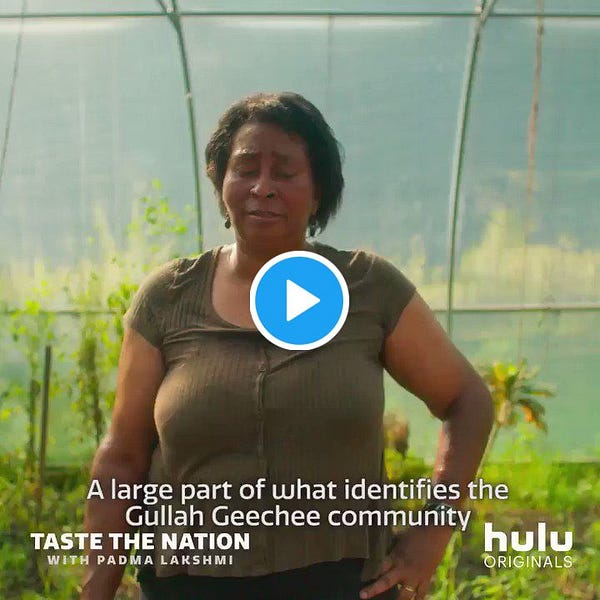Your (partial!) Juneteenth food system guide
Issue 173: A few of the many events, articles, videos, and more you can participate in to learn and listen to Black folks in the food system.

Hello! Welcome to Nosh Box, a lunchtime-ish food newsletter.
Read yesterday’s dispatch: Today in the Department of Long-Overdue Name Changes...
Tomorrow is Juneteenth, a day commemorating the end of Black slavery in America. June 19 was the date in 1865 on which the last enslaved people in Galveston, Texas, were read their emancipation rights by the Union army. While the holiday has been celebrated in some form or another annually since 1866, most white people never really learn about it — and it’s taking on more layers of meaning this year as it falls amid nationwide protests over police brutality and deeply embedded American racism.
But! As Sawdayah Brownlee, a farmer and artist and board president of the Brooklyn Queens Land Trust, told me at Food Tank this morning:
“The narrative that Black people in Texas were not free until the Union Army General Granger arrived and read their proclamation is false. Freedom is not a one-time event given to oppressed people by the state. Just as it took a collective and organized effort of Black people freeing themselves across the South, it will take collaboration, communication, and strategic efforts to divest from the inequitable food system that exists and reclaim land to grow our communities on.”
Brownlee will be presenting tomorrow at A Growing Culture’s The Juneteenth Broadcast, along with Soul Fire Farm founder Leah Penniman, Rise and Root Farm founder Karen Washington, Queen Quet Marquetta L. Goodwine of the Gullah/Geechee Nation, Jamila Norman of Patchwork City Farms, Malik Yakini of the Detroit Black Community Food Security Network, and more.
All afternoon, starting at 12 p.m. EST and continuing into the evening, these speakers and others will be talking about the food movement’s generational gap, agricultural oppression, seed sovereignty, and plants that have played a role in Black freedom. I will absolutely be watching as much as I can, and I hope you will, too. Good on AGC for turning over their platform to Black voices, and I hope other food/justice orgs will not only follow suit but also truly make it more than a one-off event.
I’m particularly excited for Leah Penniman’s talk — she and her sister are having a conversation called “Ask a Sista Farmer – The Plants of Black Freedom” at 4 p.m. I love hearing her speak and especially nerding out about environmental science — at the Food Tank Summit in NYC last fall, Penniman said she’s always asked to talk about race, but she wants to get to a point where Black farmers are asked to talk about… farming! So I’m looking forward to hearing her talk more about the way plants themselves have been used in the struggle for justice. Back in November at Food Tank, she said:
“While I’m very passionate about talking about racial justice in the food system, I actually got into farming because I’m an earth nerd. I like soil, and I like trees, and I talk to butterflies. Rarely, if ever, has someone asked me to give a lecture on soil science, carbon sequestration, or how to select the right cover crop mix for overwintering.”
Absolutely, absolutely phenomenal. Honestly, this 20-minute conversation is required watching for anyone interested in food and justice. (And Tamar Haspel’s moderating skill is *100% emoji*) True story, I bought Penniman’s book online from my seat at the Summit immediately after sitting down from giving her a standing ovation.
More info on A Growing Culture’s Juneteenth Broadcast here, and conversations will be streaming on Facebook, YouTube, and Twitter.

More food events / media to pay attention to for Juneteenth:
Article worth reading: “This Juneteenth, Chef Adrian Lipscombe Aims to Preserve Black Foodways” @ Food & Wine
Another one: “We don't farm because it's trendy; we farm as resistance, for healing and sovereignty,” @ Environmental Health News (h/t Sarah — a great in-depth essay grappling with the history of what it’s meant to be Black in the food system)
And: “When We Needed It to Be, Food Was a Weapon,” by early Black Panther Party member Billy X Jennings @ Eater
Watch Taste the Nation on Hulu tomorrow, featuring Black Jewish food historian Michael Twitty:


2 p.m.: Race/Privilege in Craft Chocolate, Part 2: Why Is Craft Chocolate So White?
4 p.m.: Vegan soul food cooking class + conversation
7 p.m.: “A Juneteenth Black Winegrower Celebration”
(This is just a start — there are obviously many more events happening tomorrow and articles to read! Keep an eye out for news, events, and ways to support in your local community!)
Here’s a way to keep this going beyond Juneteenth: At OZY, Shaan Merchant created a 30-Day Justice Plan, with one or two accessible things you can do for the next month to learn about racism in America, donate and support Black-owned artists and businesses, and stand more firmly in solidarity with the Black community. (H/t Ty)

I’m running out of space in this newsletter but here’s something else I’m watching:
Richard Betts resigned from the Court of Master Sommeliers, Americas (CMSA) yesterday over frustrations that the organization was becoming less inclusive and unaligned w/ his values. He wrote a Medium post about his decision. In it, he describes his view that the CMSA has become more about preserving the elite accreditation than about education, and writes:
Then we have the present, where the United States is finally having a long overdue reckoning with systemic racism. It is unacceptable that in some CMSA circles there has been rhetoric around not being a political organization and wanting to remain neutral. There is no neutral. By doing nothing, one passively endorses the status quo — and the status quo for BIPOC in America has been, and remains, horrible.
Betts has also made a name for himself over the past few years by his creative approaches toward more sustainable mezcal and tequila production. I talked to him about this a couple years ago for Food Tank — cool guy. Curious to see what results from his decision to step away from the CMSA.
We’re off tomorrow because this is a Monday through Thursday newsletter, but I’ll see you here on Monday. I hope tomorrow, Juneteenth, is a day of reflection, learning, and listening for all of us. And if this newsletter is valuable to you in any way, please consider sharing it — I really appreciate it! You rock!


